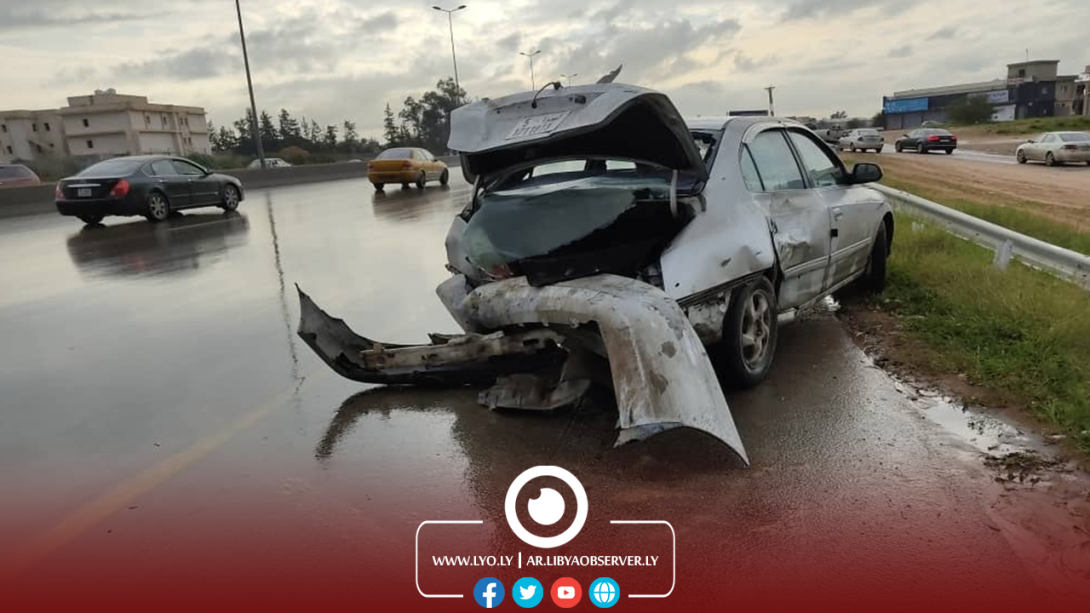By Mohamed Abaid
Navigating the Road Safety Crisis in Libya: Challenges and Solutions

Libya, a North African nation with a rich history and diverse culture, is grappling with a road safety crisis. The country has one of the highest rates of road traffic accidents in the region, a problem exacerbated by a lack of enforcement of traffic laws, poor road conditions, and a culture of risky driving behaviors.
In the period of 2006-2007, a staggering 11.14% of road accidents in Libya were fatal, while 67.35% resulted in severe injuries. These figures underscore the urgent need for comprehensive road safety measures. However, the implementation of such measures faces several challenges.
The Impact
The high rate of road accidents in Libya has far-reaching consequences. It leads to a tragic loss of life, leaves many individuals with severe injuries, and places a heavy burden on the country's healthcare system. Furthermore, it contributes to a culture of fear and uncertainty on the roads, discouraging people from traveling and hindering economic activity.
The Challenges
The enforcement of traffic laws in Libya is sporadic at best. Seatbelt use, for instance, is not compulsory in most parts of the country, and in some areas, drivers can even be penalized for wearing one. Speeding, a major contributor to road accidents, is rarely checked due to the absence of speed cameras or road humps.
The poor state of Libya's roads further compounds the problem. Many main roads are riddled with potholes and in dire need of maintenance. The lack of clear road markings and signage, particularly in languages other than Arabic, also poses a significant risk.
Finally, there is a pressing need for road safety education. Many Libyan drivers and pedestrians are unaware of the dangers of risky driving behaviors, such as not wearing a seatbelt or speeding.
The Solutions
Improving Road Conditions
The government should allocate more funds to road maintenance and infrastructure development, ensuring that roads are safe for all users. This involves not only filling potholes and carrying out regular maintenance but also ensuring that roads are clearly marked, and that signage is available in multiple languages.
Public Education campaigns
The government, in collaboration with NGOs and community organizations, should launch comprehensive public education campaigns. These campaigns should highlight the dangers of risky driving behaviors and promote the use of seatbelts and adherence to speed limits. Collaborating with media outlets can significantly enhance the reach and impact of these campaigns.
Community Involvement:
Encouraging community involvement can also be an effective strategy for promoting driver etiquette for speeding. Local initiatives and events can be organized to engage community members in promoting safe driving practices.
Conclusion
In conclusion, the road safety crisis in Libya is a complex and multifaceted issue that requires a comprehensive and sustained response. The high rate of road accidents is not just a statistic; it represents lives lost, families devastated, and communities impacted. It's a public health issue, an economic issue, and a social issue.
Addressing this crisis requires the collective effort of the government, law enforcement agencies, non-governmental organizations, community groups, and individuals. It's about more than just enforcing laws and improving infrastructure; it's about changing attitudes and behaviors. It's about creating a culture where road safety is valued and respected, where wearing a seatbelt and adhering to speed limits is the norm, not the exception.
The solutions proposed in this article - stricter enforcement of traffic laws, improving road conditions, public education campaigns, and community involvement - are not quick fixes. They require investment, commitment, and time. But the potential benefits are immense. Fewer road accidents mean fewer lives lost, fewer injuries, and less strain on the healthcare system. It means safer roads for everyone - drivers, passengers, pedestrians, and cyclists.
The road safety crisis in Libya is a significant challenge, but it's not insurmountable. With the right measures in place, and with the commitment and effort of all stakeholders, it is possible to significantly reduce the number of road accidents in the country and make Libya's roads safer for everyone. This is a goal worth striving for, a cause worth investing in. Because every life saved, every injury prevented, is a victory in the fight for road safety.
Disclaimer: The views and opinions expressed in this article are those of the writer, and do not necessarily reflect those of the Libya Observer





